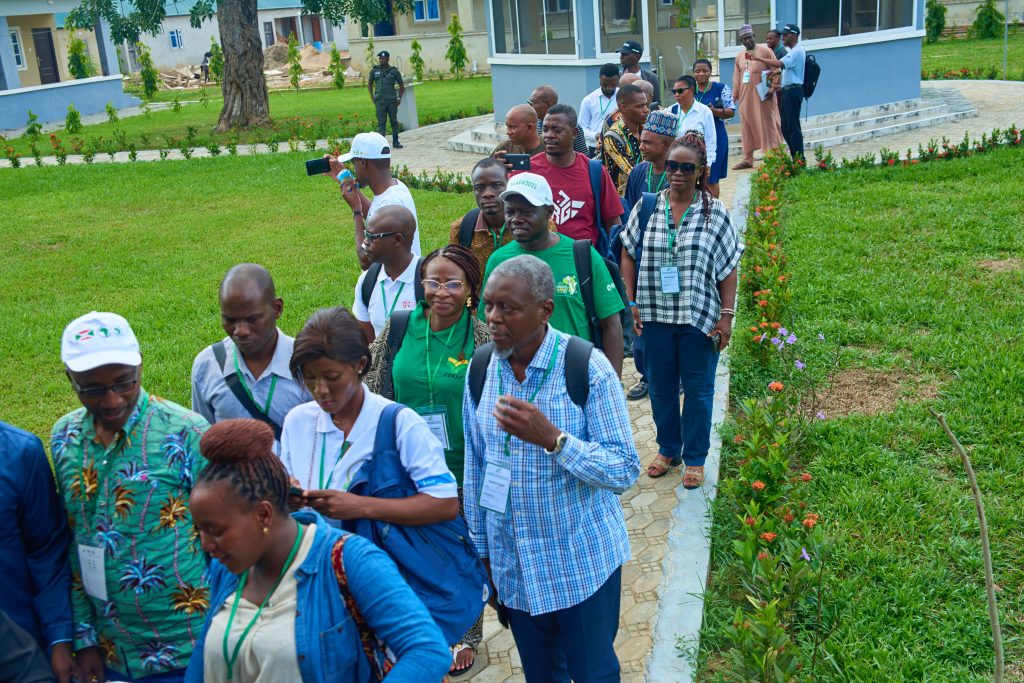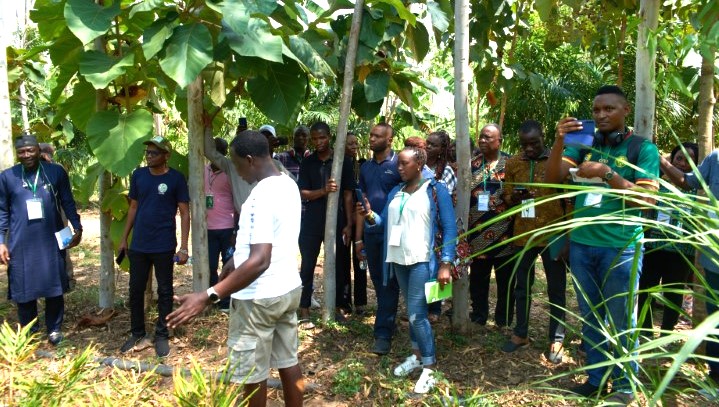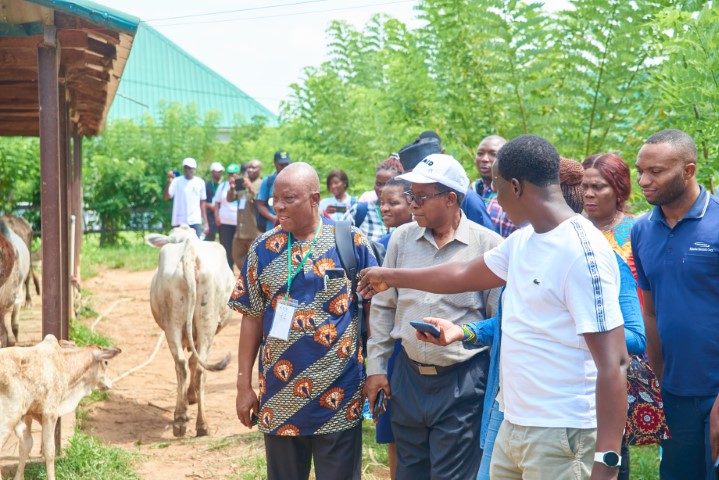
Dear Partners, as we dive into the final day of the 6th Africa Wide Agricultural Extension Week 2023, We are thrilled to share with you highlights from the fourth day of the event.

Day four unfolded with a series of insightful field visits to four sites in order to enable the participants to see and experience regenerative agriculture and nature-based solutions beyond the conference rooms. Needless to say, the work on the ground was impressive! Agroforestry Project in Damakusa, Kwali Area Council, Abuja State, , adopted two major agroforestry systems, namely; the Brazilian system (MBS) and the Indian system/ Vetri system. These two systems showcased an impressive integration of agriculture and forestry, emphasizing a harmonious relationship between humans, cultivation, and environmental preservation. Noteworthy, BHF’s commitment is within caring for carbon, water, and the overall ecosystem. By utilizing a diverse array of crops, herbs, and shrubs, the agroforestry, BHF exemplified how agricultural practices can be designed to maintain ecological balance. Both models entailed a land use management system in which trees, shrubs, and herbs are grown among crops and pastures. According to Samuel Kwasari, the CEO of BHF, it takes resilience and patience to get the first product but later the proceeds are much higher and more sustainable. Learn more about the project www.bhfagroforestry.com/

Called Servants to Serve (CSS) Global Integrated Farms, was founded by a Professor Opara whose intention was to empower individuals with a passion for agriculture to manage and expand the farm. The farm showcased the integration of various farming practices, demonstrating how a holistic approach can lead to increased efficiency and sustainability. From crop rotation strategies to advanced irrigation methods, CSS Global Integrated Farms provided a comprehensive look at modern, forward-thinking agriculture. During the visit, several aspects garnered attention and inquiries from the team including; sound the sustainability plan, sources of Energy, mode of production, and future expansion plans, among others. The farm is in the process of building a solar power plant for self-sufficiency. Production is organic, prioritizing the production of nutritious food for the population.

The Food Systems Development Project in Kwali LGA, had delegates gaining valuable insights into innovative approaches aimed at shaping resilient food systems. The project demonstrated a keen focus on sustainability, emphasizing practices that enhance food security while minimizing environmental impact. From advanced cultivation techniques to streamlined distribution systems, the Food Systems Development Project exemplified a holistic approach to the challenges facing modern agriculture. Finally, the Sustainable Development Project in Orozo, uncovered the initiatives contributing to the region’s sustainable growth.
In all sites, Participants noted that the systems were cyclic to avoid wastage as well as integrated farming without compromising the environment which are good practices to combat climate change were evident.
As we wrap up the insightful field visits on day four of the Extension Week, the wealth of knowledge and experiences gained is truly commendable. As we approach the final day, let’s continue this vibrant dialogue. Share your reflections, key takeaways, and thoughts on our journey together using the hashtag #AAEW2023. Your voices shape the narrative, and we look forward to an inspiring and collaborative conclusion of the Extension Week 2023. Join the conversation and let’s make the last day memorable!
By CIKM Unit
